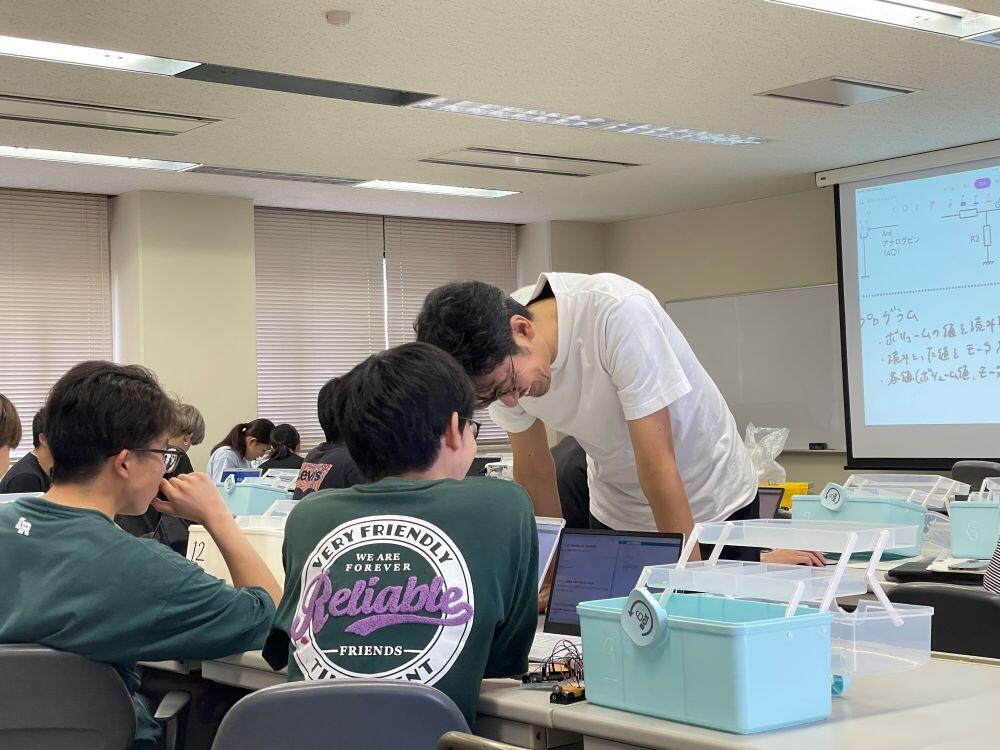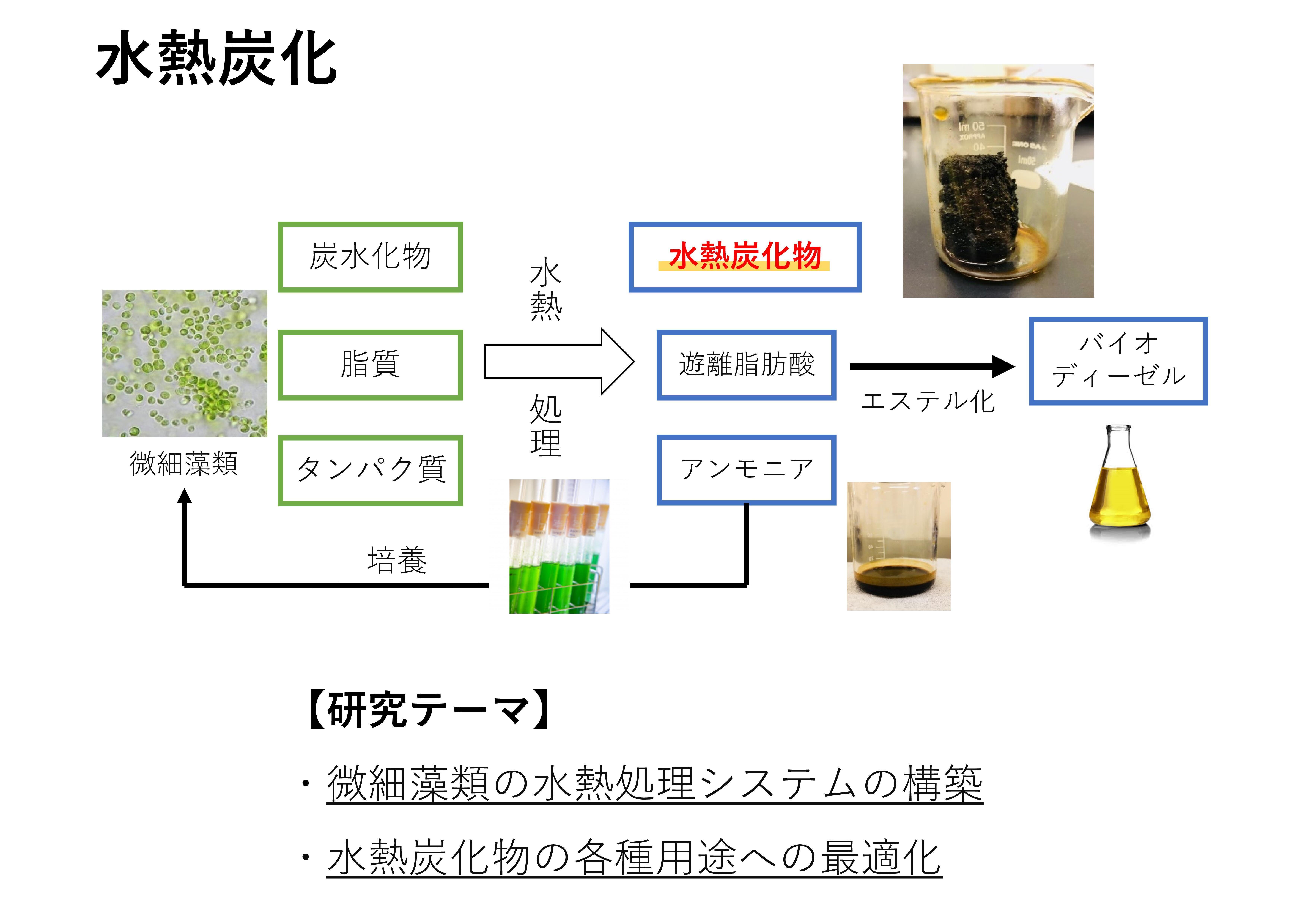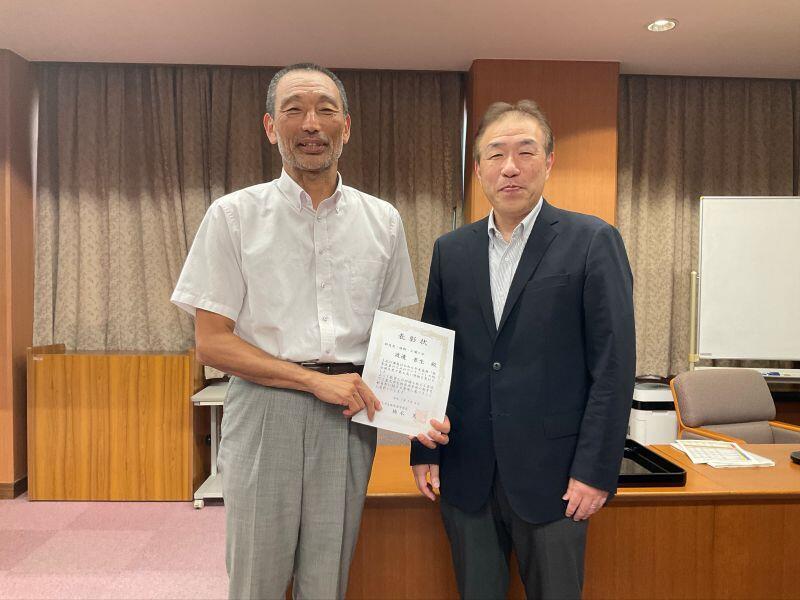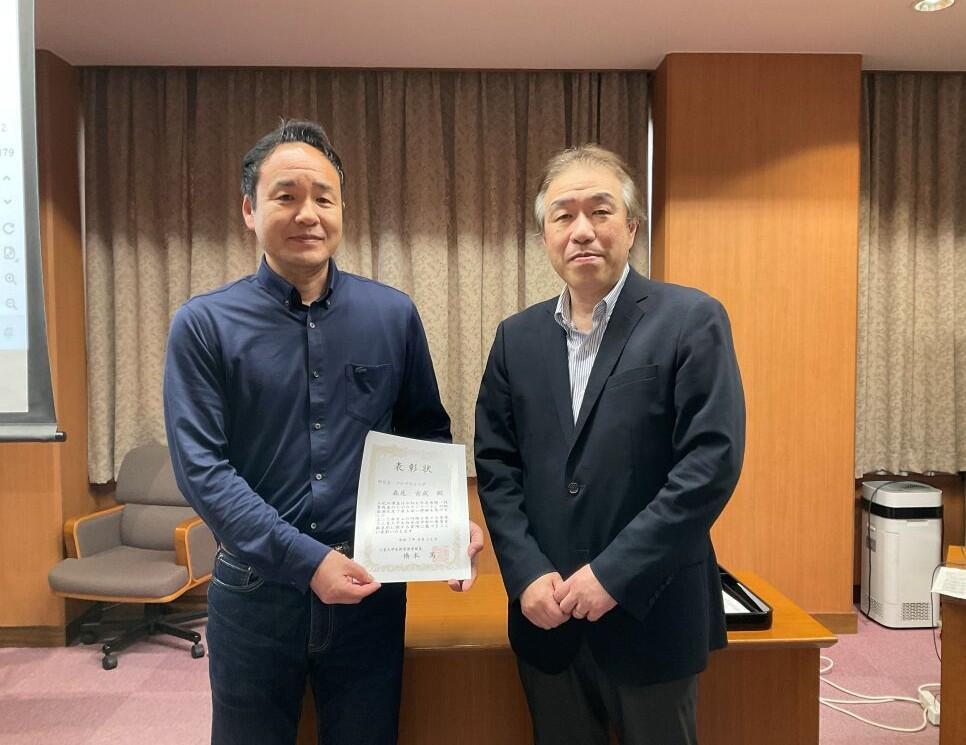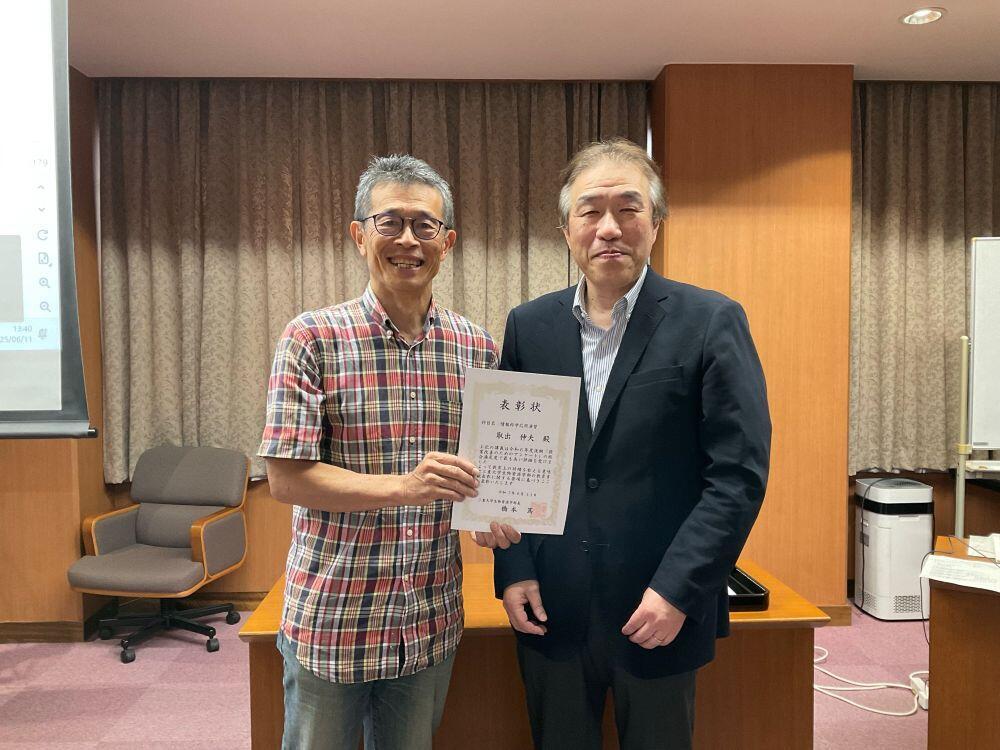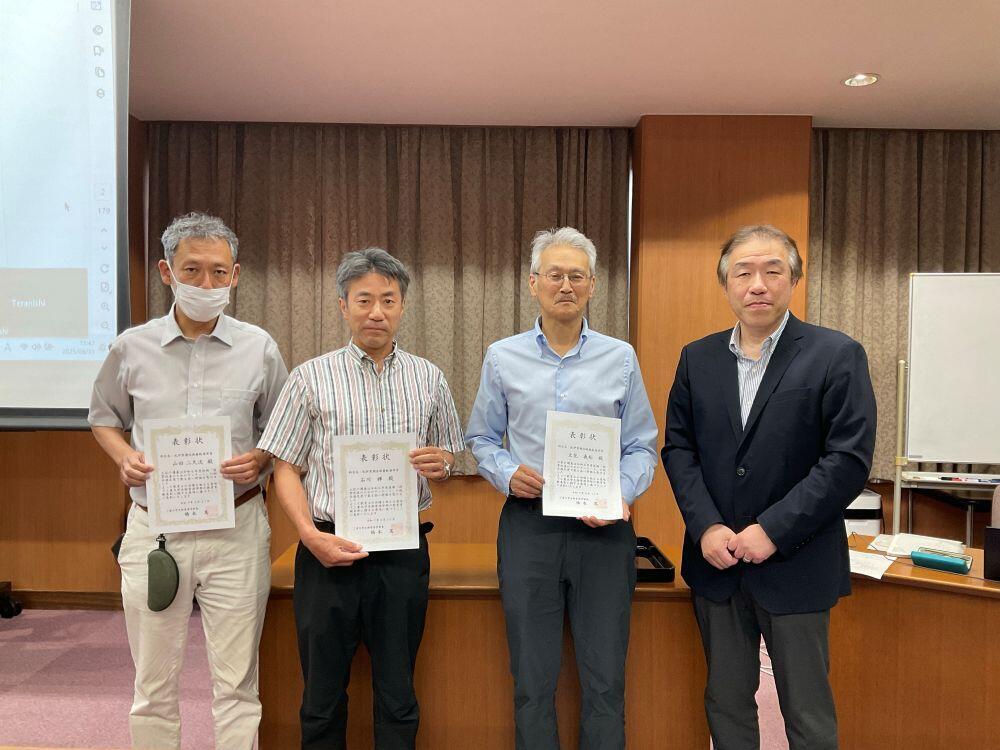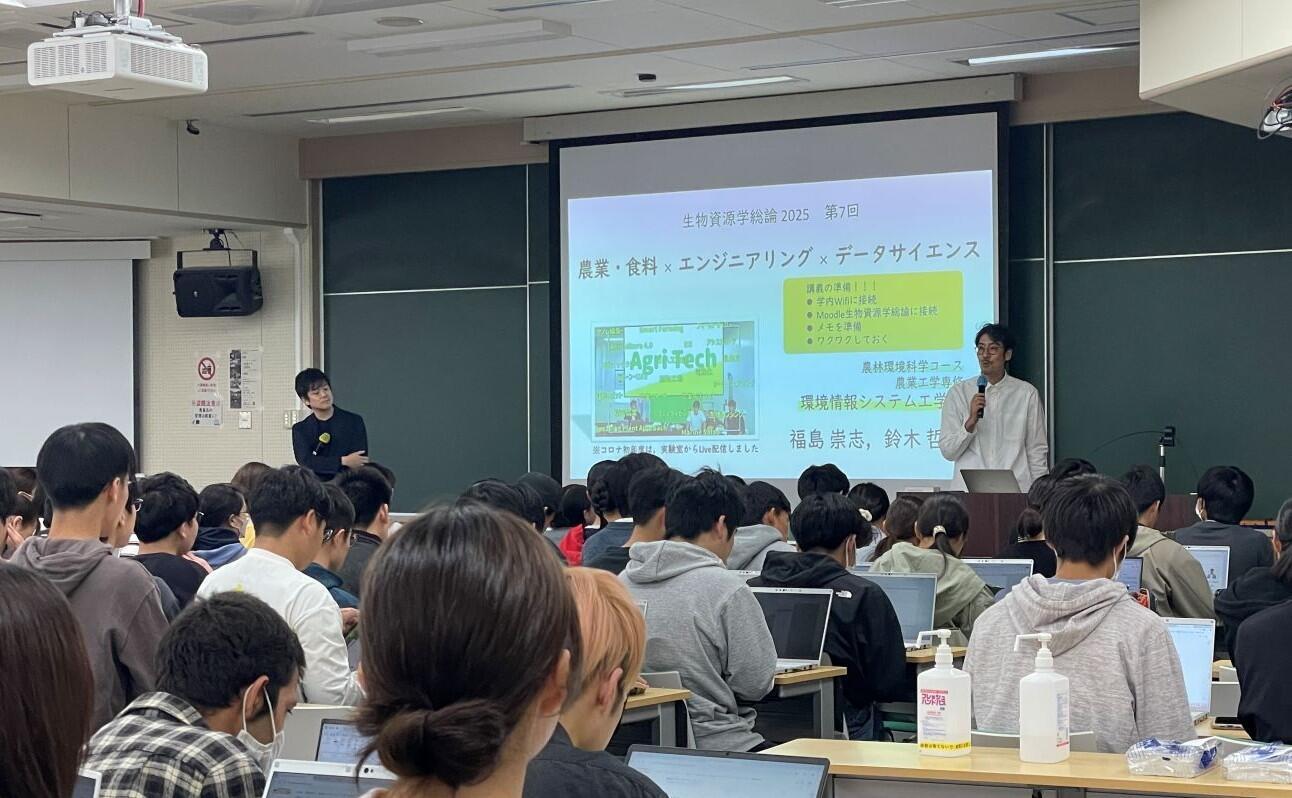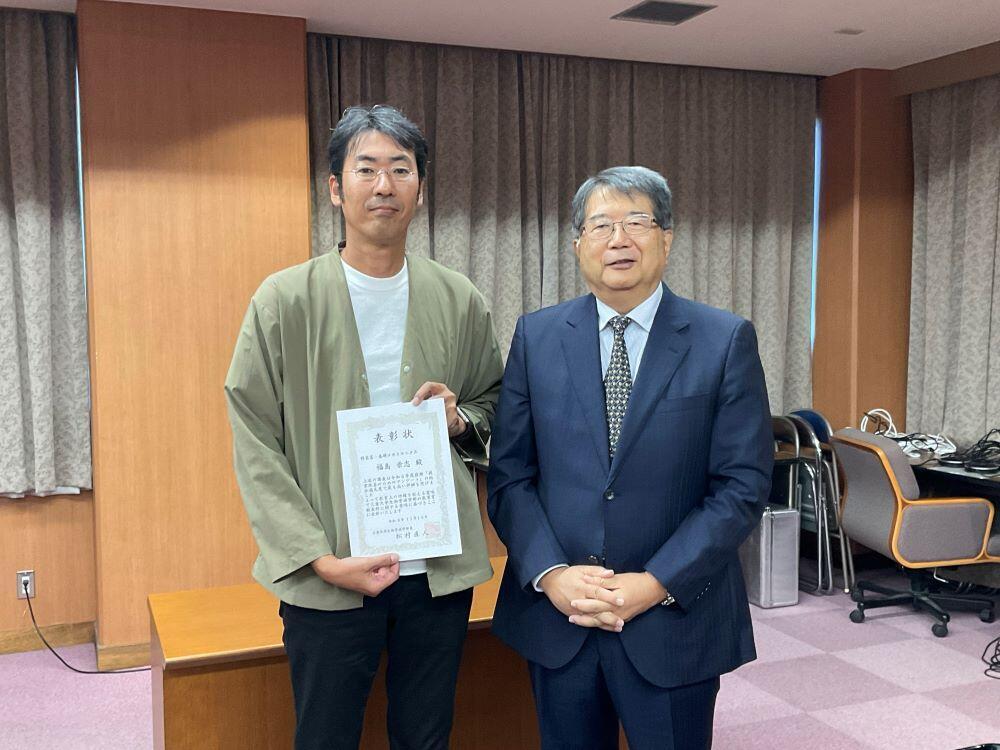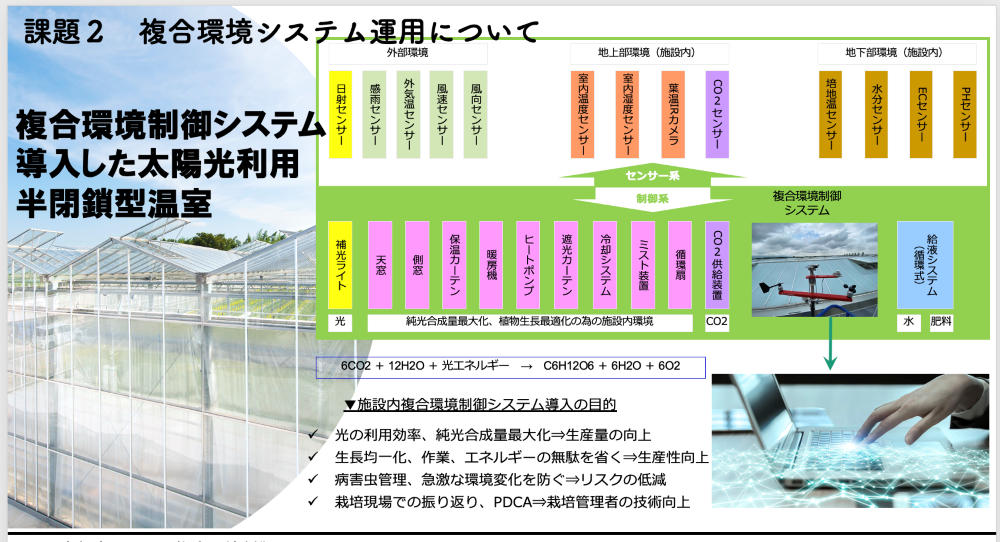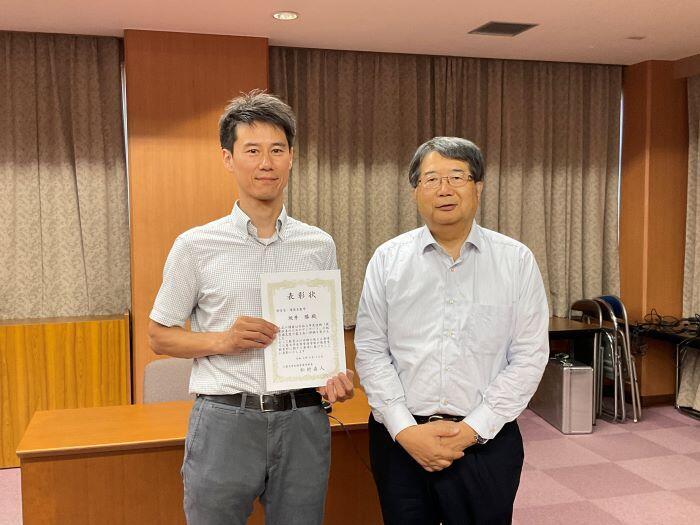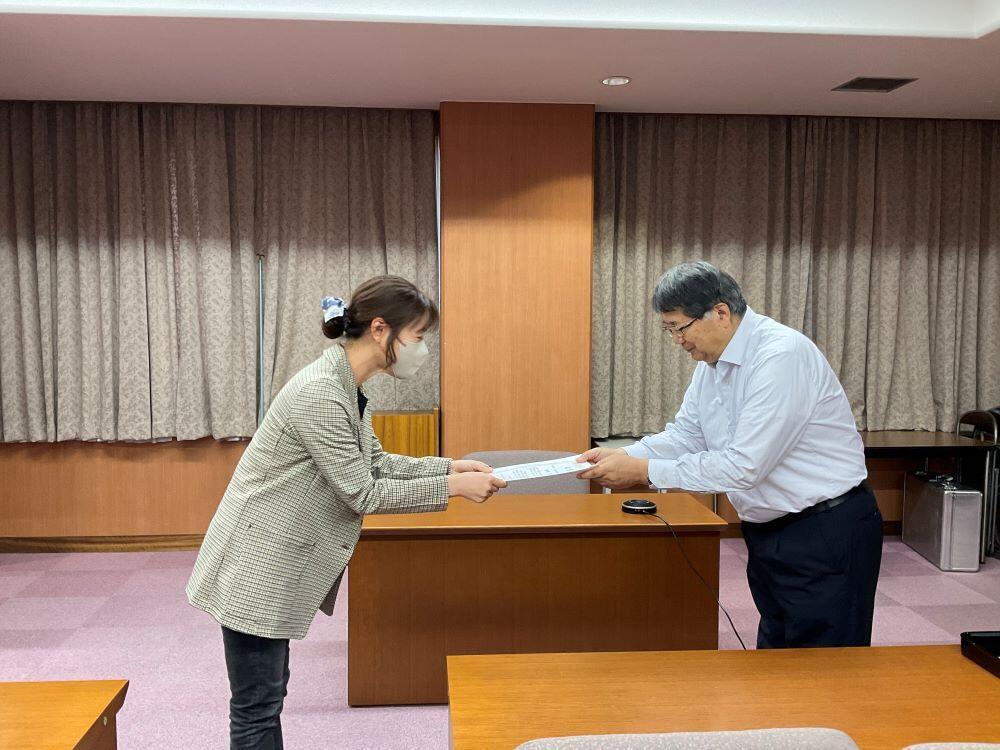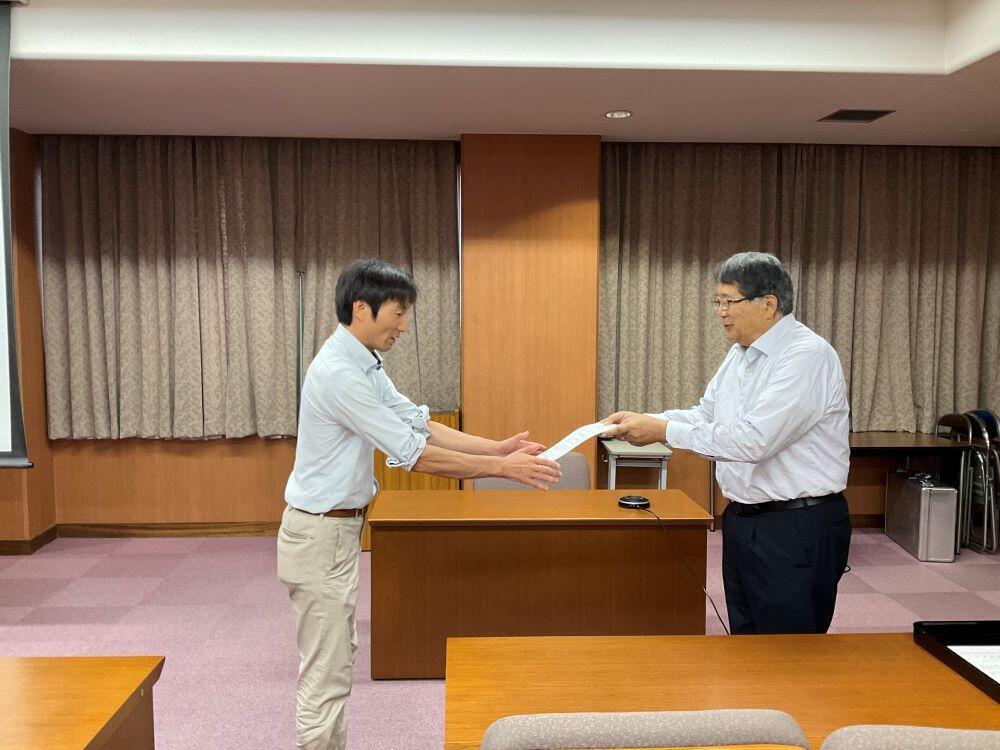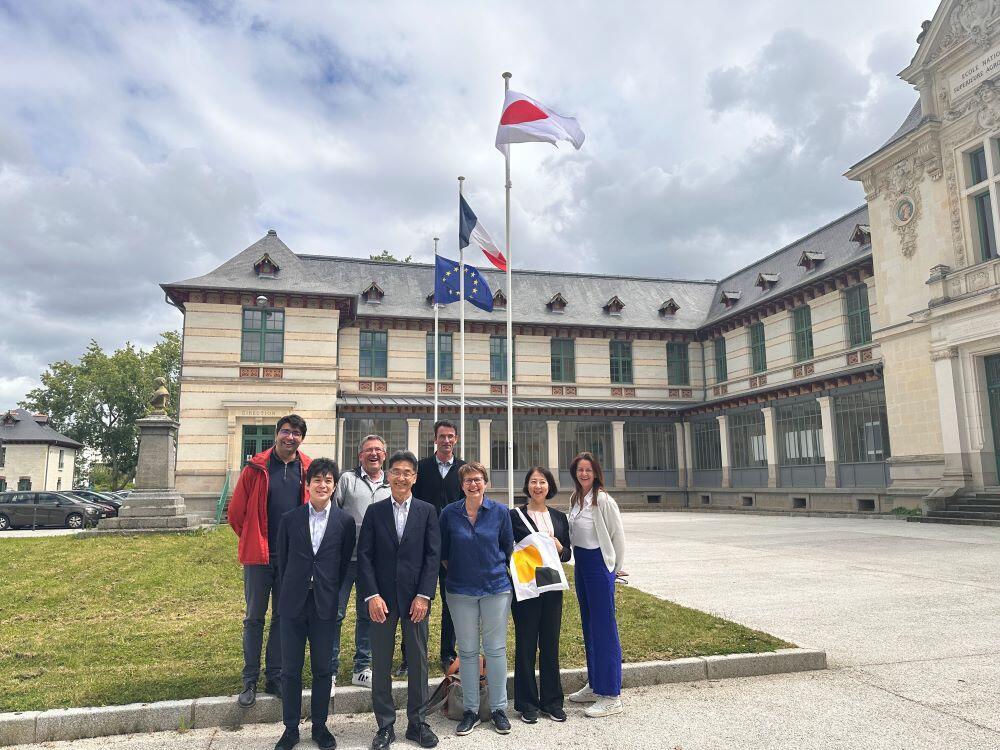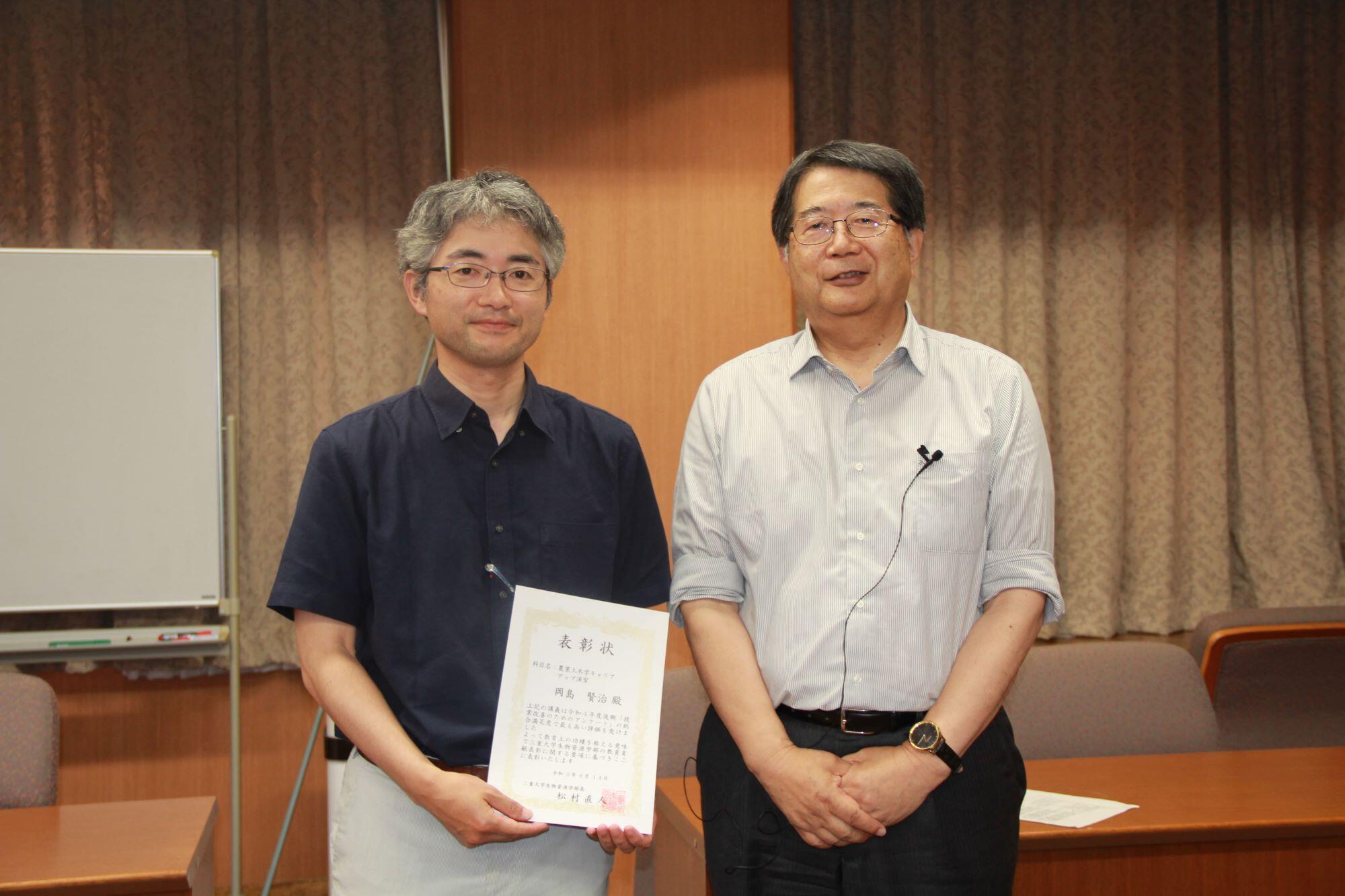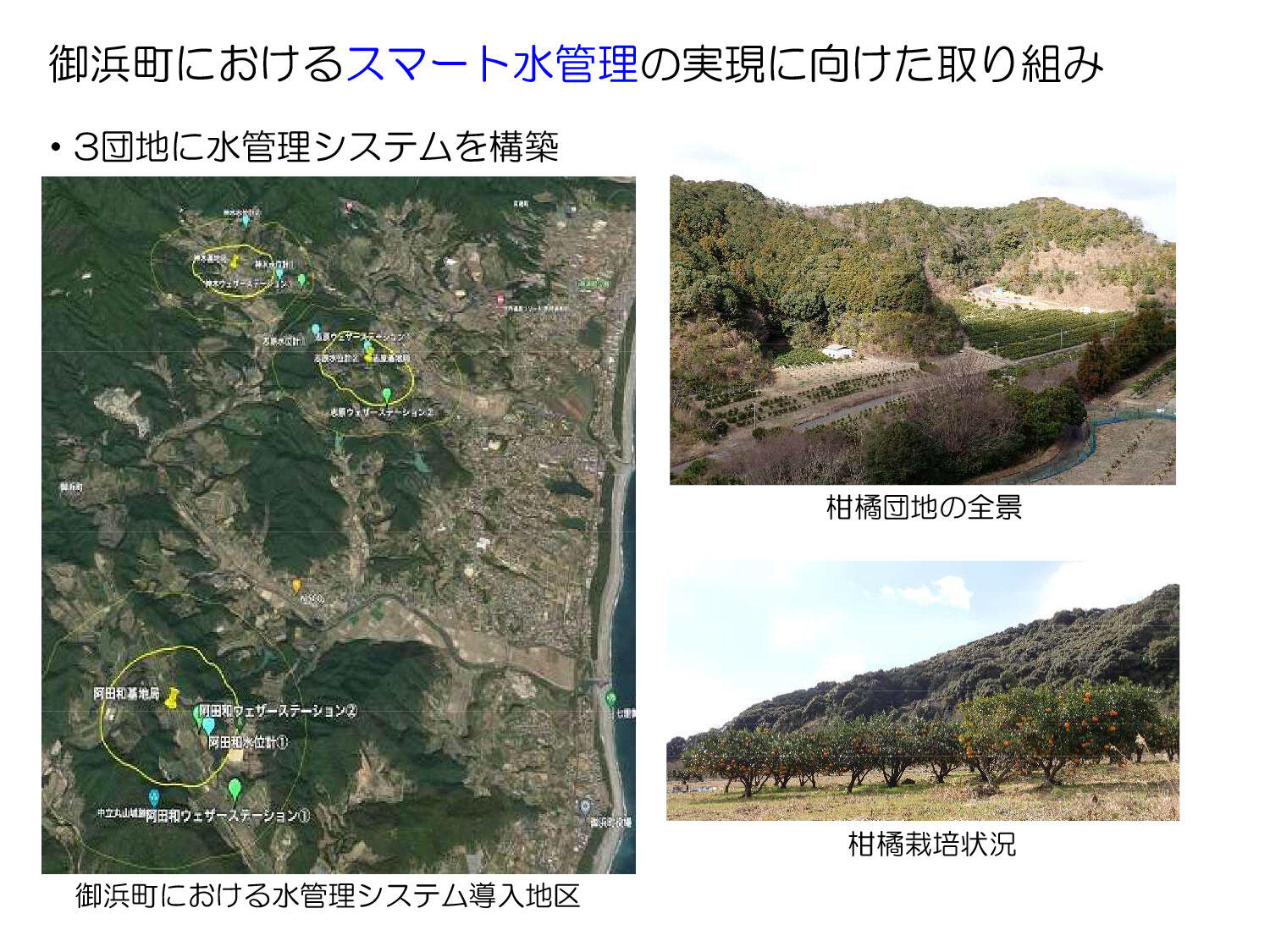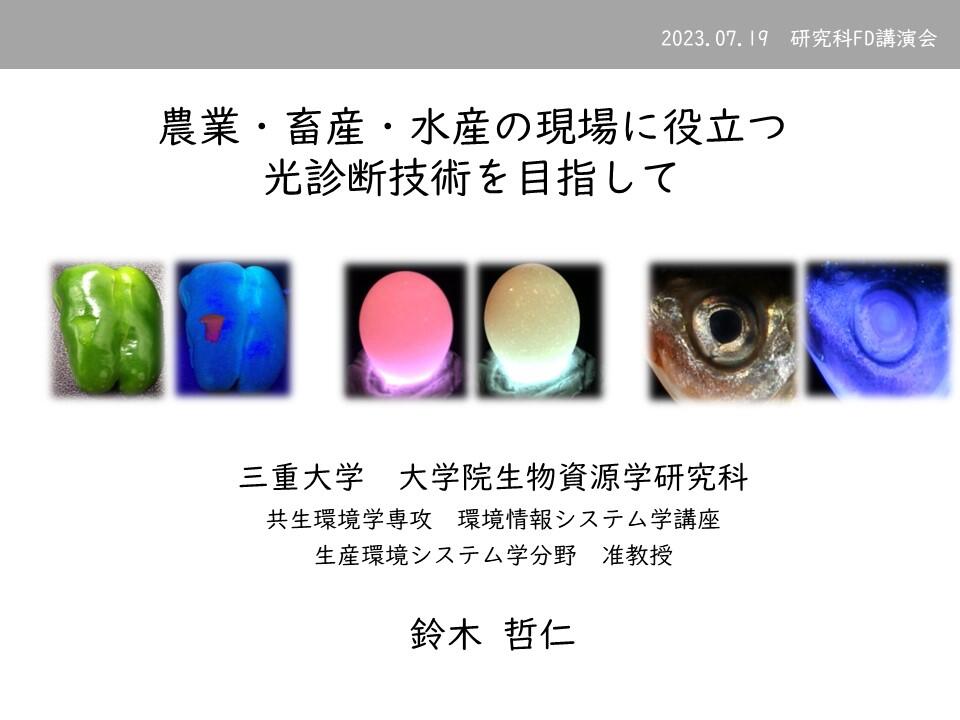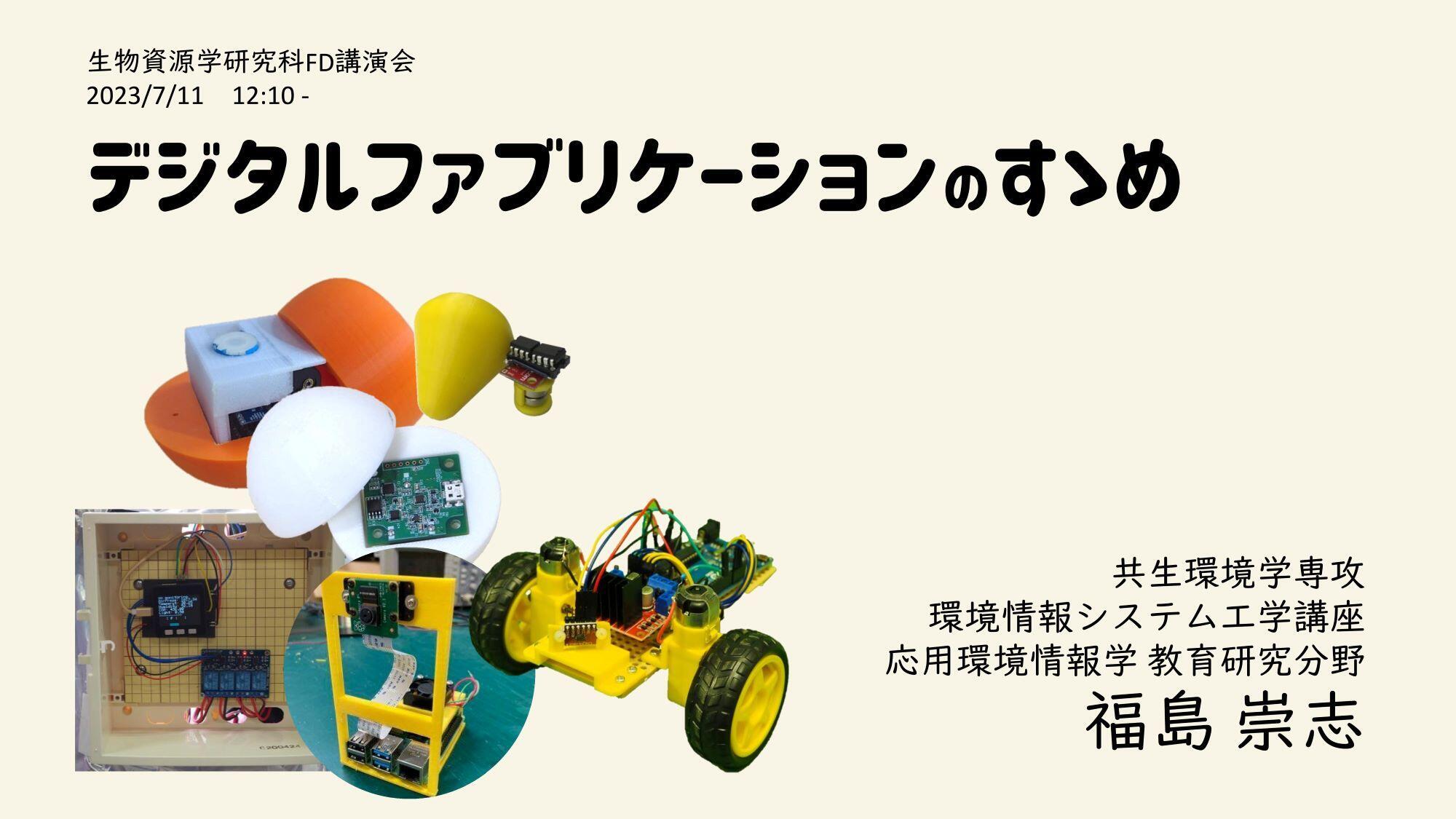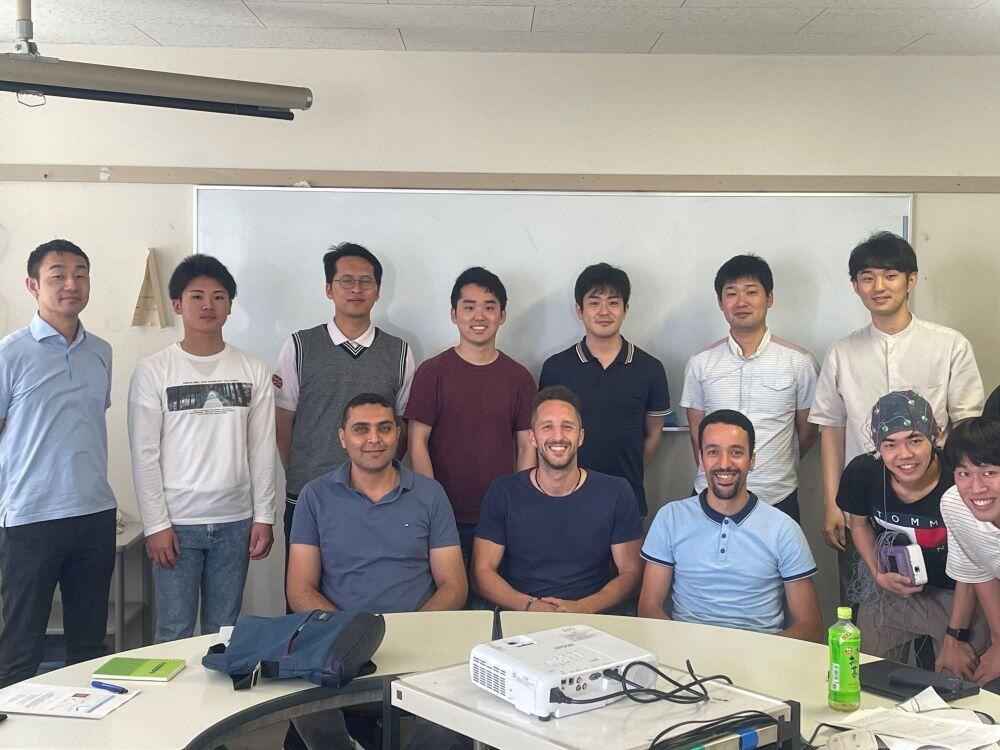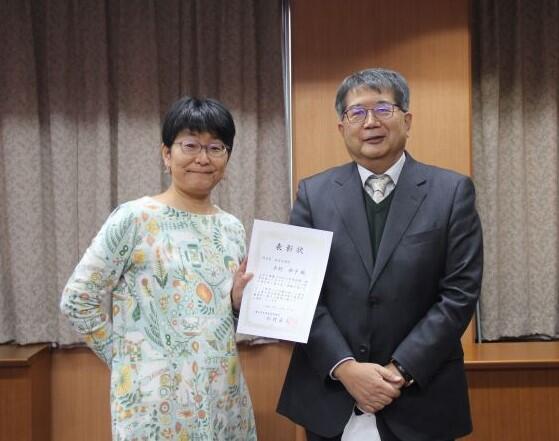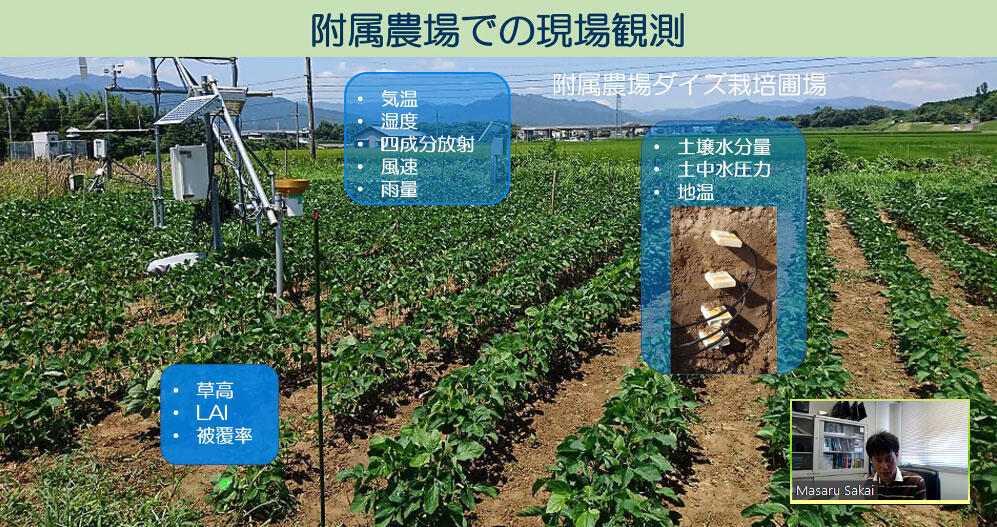Environmental Science and Technology
In Department of Environmental Science and Technology, we aim for the construction of a sustainable biological production system in which human activities and biological systems are in harmony while preserving and restoring, and understanding, the environment of the global biosphere which is made up of all the diverse ecologies. To that end, we carry out research and education, rooted in basic science, in fields such as meteorology, environmental science, and ecology, looking at global ecological systems with its complex interactions among the land, sea, and sky, and applied technology, in a field of environmental and agricultural engineering to achieve a better and more sustainable future for all. This department is made up of three courses: Geosciences, which looks at the fields of geoscience; Environment Oriented Information and System Engineering, which uses instrumentation, control and systems engineering of environmental information, with a core of information processing technology based on knowledge of bioecology, as its methods; and Irrigation, Drainage and Rural Engineering, which is designed for the protection of rural villages and farmland where humans are directly connected with the workings of nature as well as their sustainable use as sound, healthy places for material circulation. The details of the education and research provided by each course are as follows.
Courses
Geosciences

Changes in the earth's environment such as climate changes and abnormal weather work in concert with ecological environmental systems and earth systems that are made up of the atmosphere, the oceans, the soils, plants, the hydrosphere, the ecosphere, and the activities of humans and other animals. We conduct research on the basic structures, change processes, symbiotic relationships, and interactions that make up these systems, such as the evolution of the earth, climate and terroir, conservation of the global environment, the physiological ecology and ecological harmonization of flora and fauna, and human activities, all with reference to observation, measurement, experimentation, investigation, remote sensing, and numerical analysis. We provide education and research to train people who can use the new scientific knowledge gained from this research and the thinking and practical skills learned through research to contribute to the creation of the next-generation culture and construct a sustainable society.
Environment Oriented Information and System Engineering
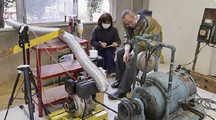
In order to allow humans to develop sustainably while coexisting with other organisms and preserving the environment, our course uses systems engineering as a method for education and research related to complex systems, the control of production systems, and the measurement of environmental information with a core of information processing technology, building on knowledge of bioecology. In other words, we offer research and education on symbiotic technology and plants that are related to environmental improvement. In addition, we carry out research and education on applied technology such as the production and processing of bioresources using low environmental load technologies through precise management.
Irrigation, Drainage and Rural Engineering
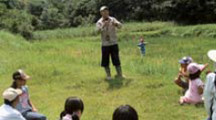
In this course, we provide education and research with the goal of creating a rich rural environment as place for sound, healthy material circulation, preserving the rural regions where agriculture is practiced. Specifically, we carry out research and education on the appropriate and sustainable use of water, soil, and space in rural areas where the workings of nature and humans directly interact, planning and conservation for rural environments, development and management of rural areas and facilities, the effective use of regional resources, the theories and technologies required for preventing or mitigating natural disasters and recovering from them, investigation and analysis of overland and subsurface flows, and explanations and forecasts for the flow of water, chemicals, heat, and gas in rural areas.
Atmosphere and Climate Dynamics
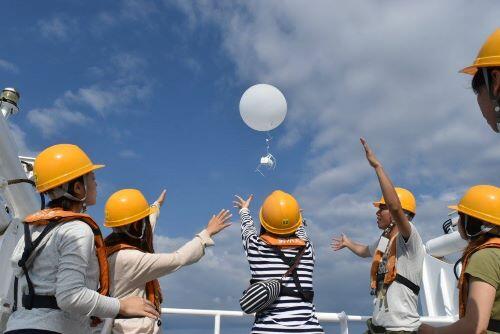
The primary aim of our education and research is to analyze and understand, at both the global and the regional scales, the mechanism and the dynamics of the changes in the global climate and ecosystem, as well as the mutual interrelationships among them. GIS, field observation and satellite data are intensively utilized. The fingerprints of these changes are observed through such phenomena as extreme weathers (El Niño, storms), drought, air and water pollution related eco-climatic problems (global warming, ozone depletion, acid rains), and changes in the land covers (tropical rainforests destruction, desertification). We especially emphasize on the role and influence of the human as part of the global ecosystem. This makes it possible to obtain a deep understanding of his actions, and to devise and implement ways and means for sustainable solution to the problems.
Environmental Information and Technology
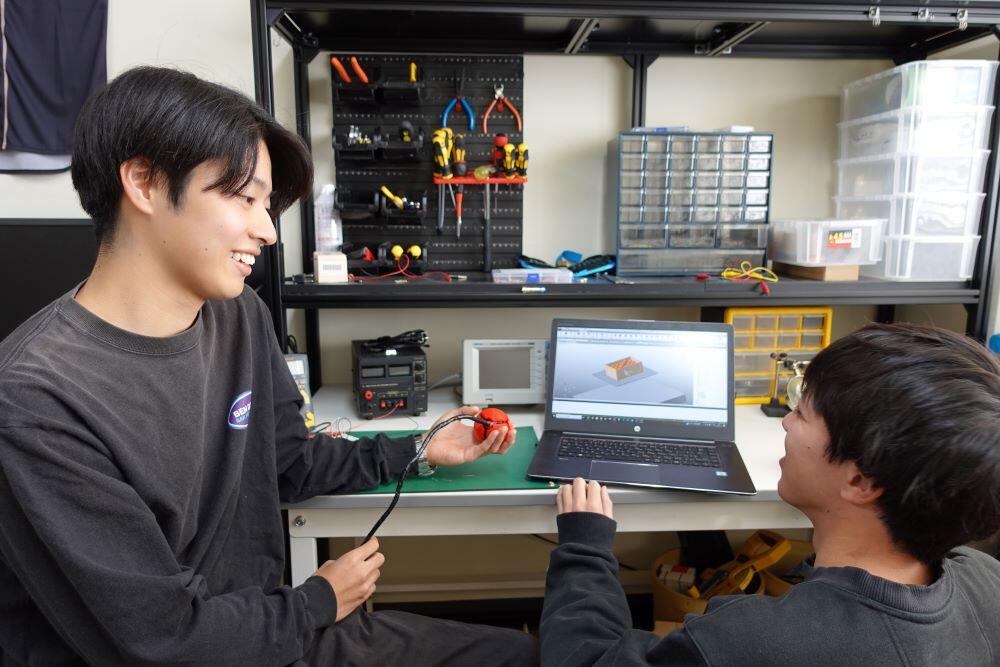
The purpose of our research is to contribute to the achievement of Japanese smart agriculture, and the increased biomass utilization by using engineering approach. Especially, we are actively involved in education and research related to the traveling performance of agri-vehicle, the agricultural information system and the distribution system. We also focus on education and research associated with torrefaction and biodiesel.
Rural Planning
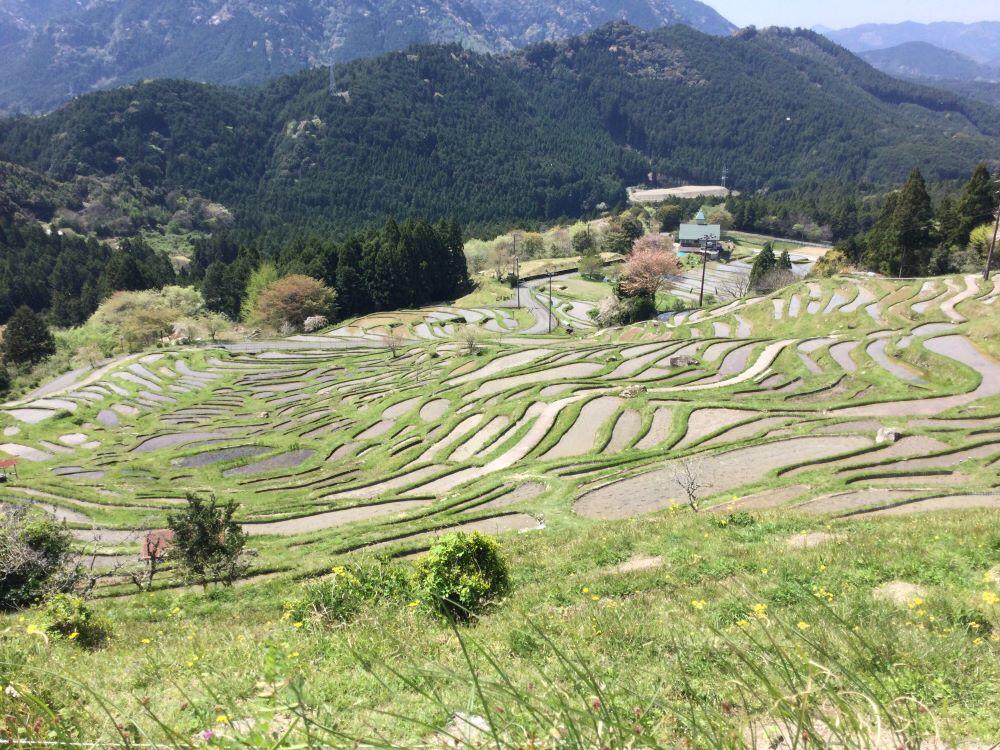
Today, many of the sensitive young people who live in an urban area take a lively interest in rural area. They move to the rural area for their livelihood and a good life. On the other hand, some human activities in rural area have been decreasing. It is deeply concerned about that it brings to decline multifunction in rural area, which are mitigation of soil erosion, groundwater storage and so on. In this laboratory, we are studying about policies for sustainable live and livelihood in the rural area, which are sustainable agriculture, food keeping for living and building a self-production system of energy. We research and educate a skill of social planning and technology in sight of water, farmland and energy in rural area.
Meteorological Analysis and Prediction

Weather and climate have substantial influence on our society and economy. This is why various types of weather forecasts are provided, ranging from several-hour forecast to seasonal prediction. Those forecasts, however, have not yet been fully utilized by society. Every day, a lot of meteorological data including observation and numerical simulation output are produced for the sake of providing weather forecasts. By analyzing those data, we are aimed at improving weather prediction skill through deeper understanding of meteorological phenomena, and also at finding a way to make weather forecast more useful for society.
Productive Environment System
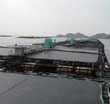
The performance of machinery and equipment systems related to biological production, industrial production, the environment, etc. are analyzed using information engineering and system engineering. The condition monitoring and diagnostic methods of machinery systems for environment-friendly, safe and secure, new diagnostic technologies for biological materials and foods based on optical characteristics, and intelligent robot system are educated and studied by introducing advanced technology.
Soil Resources Engineering
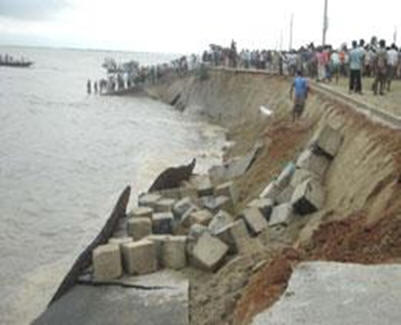
Soil resources are useful for our life.
However, it sometimes causes serious
disasters. Our laboratory study about
disaster prevention of ground because of
keeping safety and suitable life. Research
topics are evaluating physical and
mechanical property of soil and the
characteristics of interaction problem
between soil and structure. Main research
projects in our laboratory are shown
below;
1)We developed light weight new Jack to
use for lift-up procedure of ground anchor
structure (SAAM system) SAAM system is
possible to evaluate the healthiness of
ground anchor.
2)We developed ground improved machine
with gravel column (ECOGEO). ECOGEO
is possible to apply improvement of
bearing capacity and drainage in the
ground.
3)We research on improvement and
maintenance of old ponds.
4)We evaluate shear band propagation in
the ground using FE analysis and model
test.
Ocean Climate
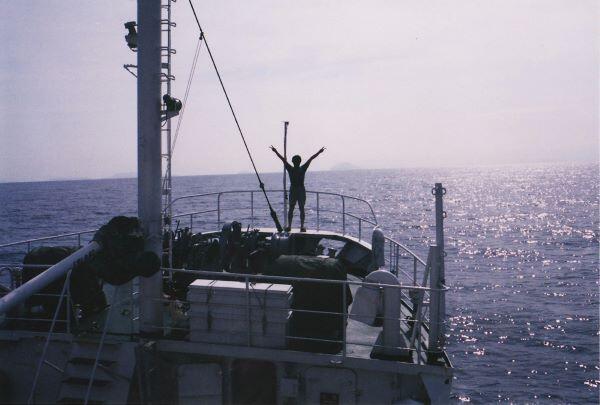
According to the increase of greenhouse gas in the atmosphere such as carbon dioxide, it is suspected that global warming would be proceed and abnormal weather would be frequently occurred. Abnormal ocean conditions such as decease of the Arctic sea ice or the temperature rise in the deep seas, would be occurred in the global ocean, too. In our ocean climate laboratory, concerned researches on the global ocean climate variability and global ocean circulation change are carried out through the global analysis of sea level change and water temperature. For the researches, in-situ oceanographic observation and analysis are also carried out by our training ship "Seisui-Maru" of Mie University. Further numerical model experiment on the ocean circulation, and re-analysis of the archived oceanographic data in the JODC are also tried. Let's start to study the global ocean climate change with us for the sustainable ocean and earth.
Environmental Control in Biology
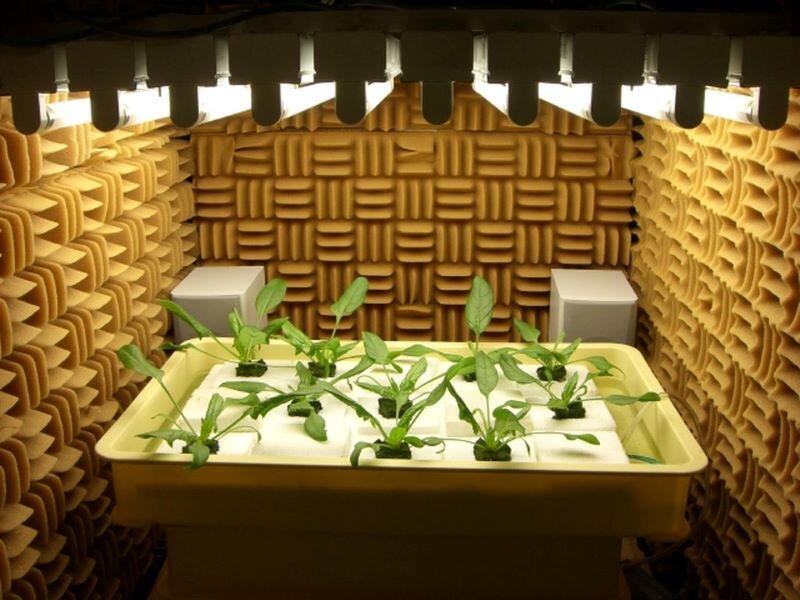
First step of our research is
understanding the information about
bioresource production involving with
living things, environment, and people.
With controlling these knowledge,
the technology and theories are studied
how to organize the bioresource
production system most appropriately
such as plant factories.
Water Resources Engineering
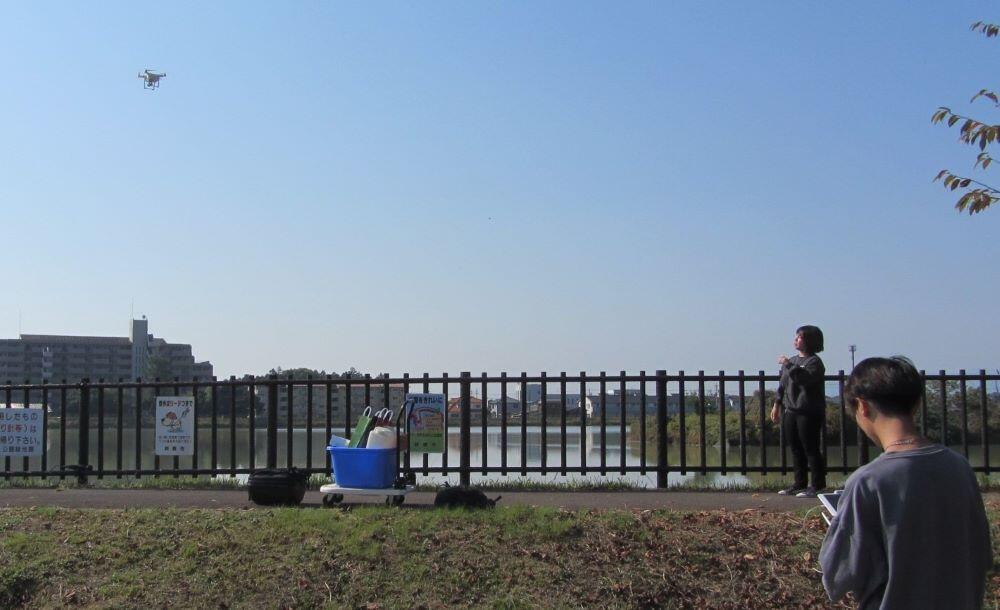
We are aiming to develop the conservation and recycling technology of sustainable water resources that can answer the continuing needs of the society on the basis of a quantitative grasp of the hydrological impacts including evapotranspiration and rainfall during the hydrologic process of the natural world studied mainly from the agricultural sector. To be specific, through the proposal related to the design of water storage facilities, water transmission and deliverage facilities with attention paid to water quality problems such as eutrophication, etc., the proposals about environment improvement and research while paying attention to the ecosystem of the water environment, and proposals for measurement technology and facility design for contributing to watershed flood control in rural areas, the educational research also containing the evaluation method itself will be conducted based on the results above.
Ocean and Climate Change
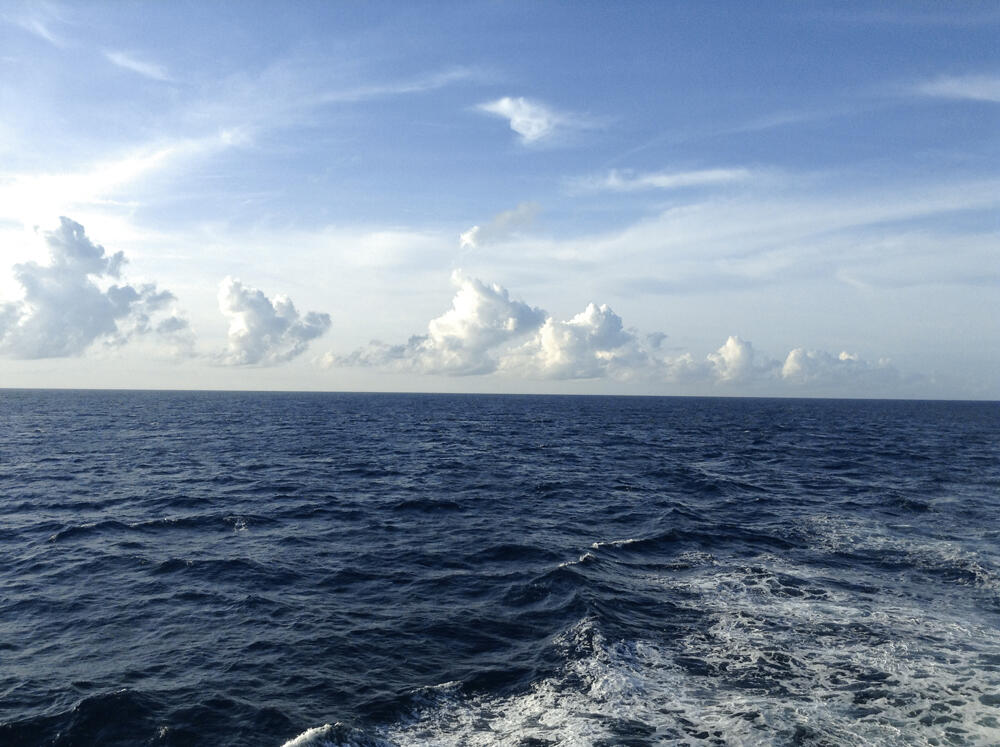
Ocean covers the approximately 70% of Earth's surface and plays a vital role in changing weather and climate by providing a huge amount of heat and water vapor. It is also important source of food supply for an ongoing population explosion. Based on physical oceanography and dynamic meteorology, this laboratory covers studies on roles of ocean in Earth's climate and ecosystems, with synergy of remote-sensing techniques, numerical simulations, in-situ observations.
Energy Utilization Engineering

The purpose of our research is to utilize renewable biological resources and to automate and improve the efficiency of food production systems. We educate and research the theory and technology on the development of biodegradable biomass materials using plant biomass, the improvement of running performance of off-road vehicles, the automation of food production systems, and the optimization of agricultural machinery for effective use of energy.
Terrestrial Land and Water Engineering
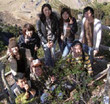
We will intend education and research on development of engineering management technologies for farmland soil, improvement technologies for soil degradation, international technical cooperation and others. In particular, we will intend education and research on various problems in agricultural and rural areas, NOGYO-DOBOKU (Irrigation, Drainage and Rural Engineering) as a countermeasure, land-use planning, agricultural and rural development, farmland conservation and others.
Future Earth
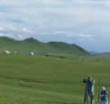
Science and their community should substantially change their disciplines and attitude to cope with environmental issues under Global climate change. We need sincere reflection on past scientific collaboration, then encourage trans-disciplinary approaches to address multi-dimensional changes in humanosphere in coming decades. This laboratory covers sustainability and resilience concepts from local to global environmental issues based on multiple earth science knowledge, such as climatology, geomorphology, plant ecology, glaciology, etc., with combining detailed field works and upscaling techniques using remote sensing and GIS. We also aim for social inclusion to extend our scientific knowledge to the community.
Agricultural and Food Systems
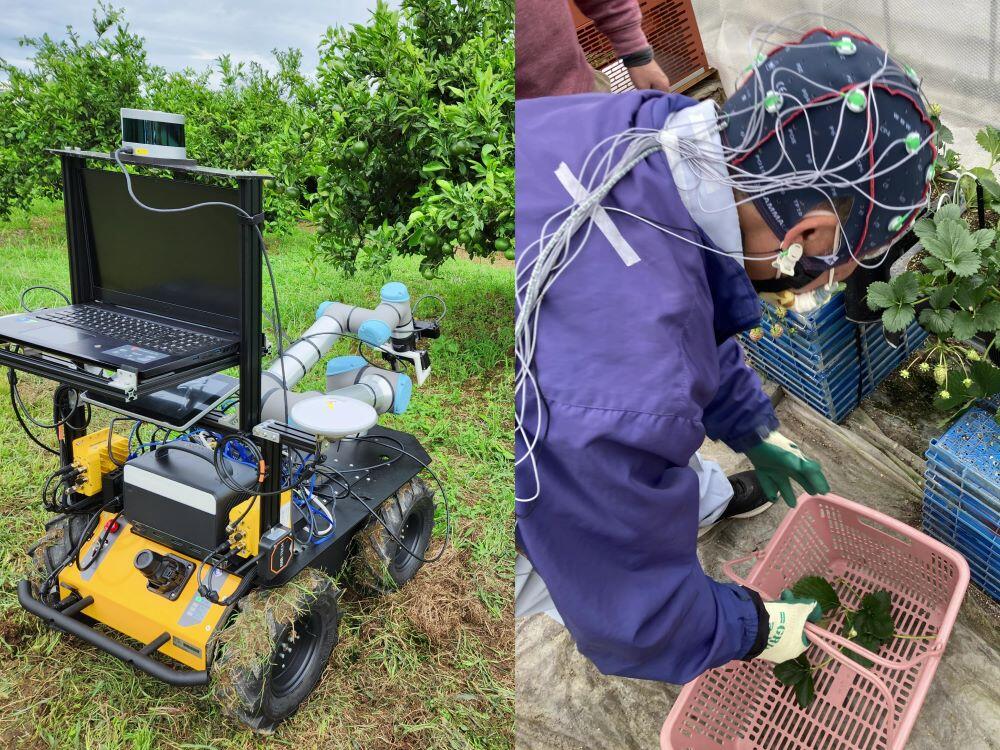
The focus of our education and research field is on food system defined as the aggregate of food-related processes involving food producing, harvesting, processing, packaging, transporting, marketing, consuming, disposing of food. Education and basic and applied research for sustainable food system, smart food system, agricultural robot, and information technology for monitoring the quality of agricultural and marine products and food are carried out in this field.
Irrigation Facilities Engineering
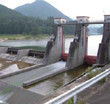
Agricultural facilities such as dams, headworks and canals are facing various problems due to intensifying natural disasters and aging of the facilities. Advanced maintenance methods for agricultural facilities are being sought with the rapid advances in information technology. To solve these challenges, we promote practical education and research into the safety and maintenance inspection methods and appropriate new reconstruction methods in the construction and maintenance of agricultural facilities, using techniques such as materials testing, model testing, surveys and numerical analysis.
Sustainable Earth System
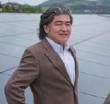
Research subjects of this laboratory are
(a) the past and (b) the future of the earth.
(a) Knowledge of the past earth
environment is needed to be understanding
nature of material and energy circulation in
our planet. For understanding of the past
earth, we investigate marine and land
sediment and sedimentary rocks by the
several methods: geology, environmental
geology, sedimentology, geochemistry, and
geochronology.
Especially, we develop and apply original
processing and instrument of
non-destructive scanning technology called
"TATSCAN". (b) For predicting and
planning of our future of the earth, it is
necessary to investigated sustainable
development not only for natural
environment but also for human society. We
investigate future model of self-sustainable
social system especially based on renewable
energy such as, solar,
wind, water, and biomass.
Vadose Zone Hydrology
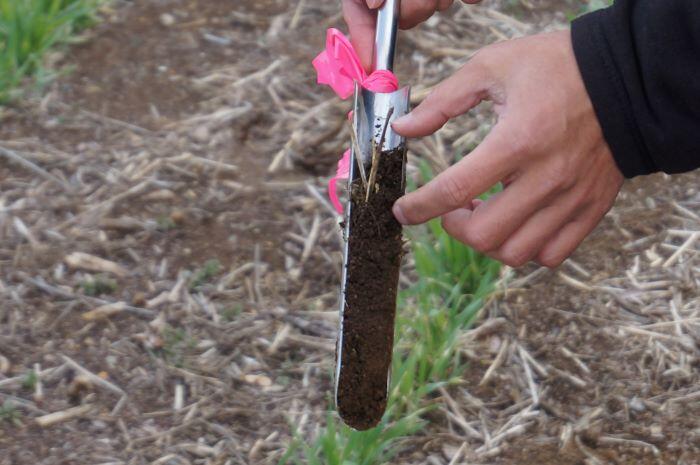
Soils are among the most complex systems found in nature where physical, chemical, and biological processes taking place simultaneously. Water and energy balance through the soils, especially in cryosphere, strongly affects not only local agriculture but also global climatic changes. Vadose zone hydrology and soil physics is concerned with the application of physical principles to characterization of soil properties and to understanding of processes occurring in this life-supporting thin crust of the Earth surface.
Water Environment and Natural Disasters

Water often presents a threat to humankind, but is often regarded as a resource. From the former viewpoint, we study and educate students about natural disaster science, especially the science of water-related disasters. From the latter viewpoint, we study and educate students about water resources and water environment engineering. For each hydrological process, we specifically examine precipitation and flooding, especially statistic and stochastic analyses of precipitation and flood. Research areas we treat are hydraulic engineering, river engineering, hydrology, meteorology, and seismology.
Soil Physics and Hydrology
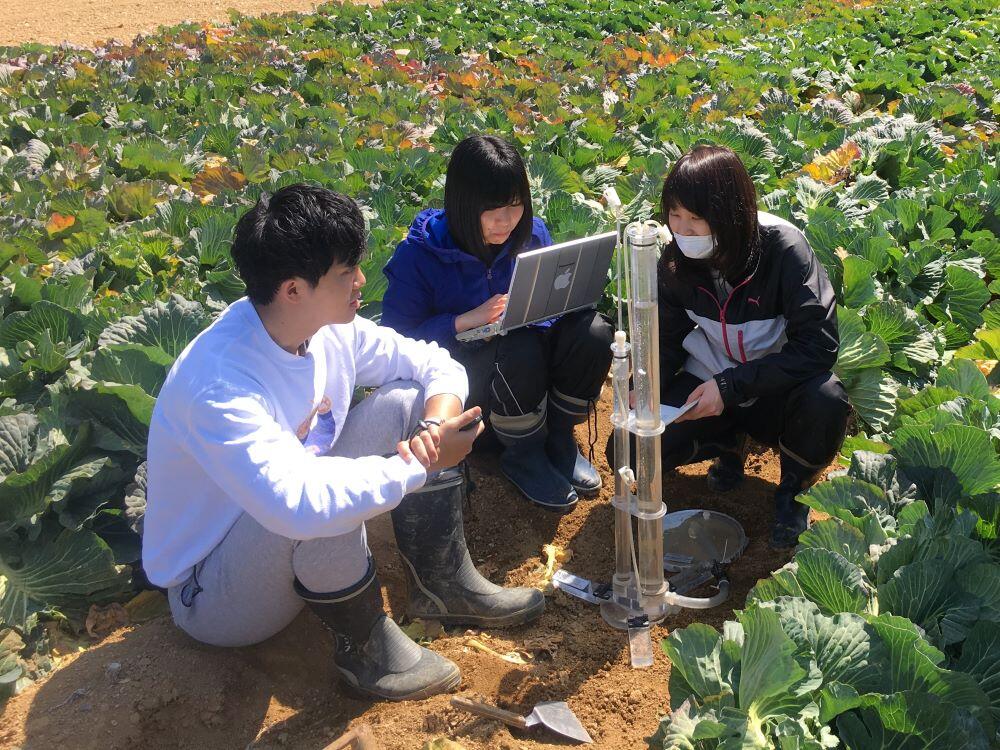
The vadose zone, also termed the unsaturated zone, is a soil layer from the surface to the position of the groundwater, generally corresponding to the plant root zone. Unsaturated water flow, solute, heat, and gas transport with the carbon and nitrogen cycling in the vadose zone are experimentally and numerically studied. Field and laboratory experiments are conducted to intensively monitor water flow and solute transport. Numerical simulation models are developed to predict water, heat, and chemical transport with plant root uptake in a soil including nitrogen components in a solution phase and carbon dioxide in a gas phase as a result of degradation of organic matters. Furthermore, the chemical transport model is applied to predict cesium transport in agricultural fields of Fukushima area.
Applied Environmental Studies
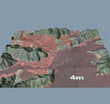
Our laboratory aims to create the society where people could have the feel of freedom, safety and welfare. We evaluate different aspects of the world. For example, riding a motorcycle has both aspects of pleasure and danger. Improving the regional environment sometimes leads to deterioration of the global environment. We study the sustainable regional managing method based on the evaluations. We utilize landscape characters because they reflect the underlying geology, soils, topography, land cover, hydrology, historic and cultural development and climatic considerations. We want to provide a more harmonious link between man and the natural world with them.

